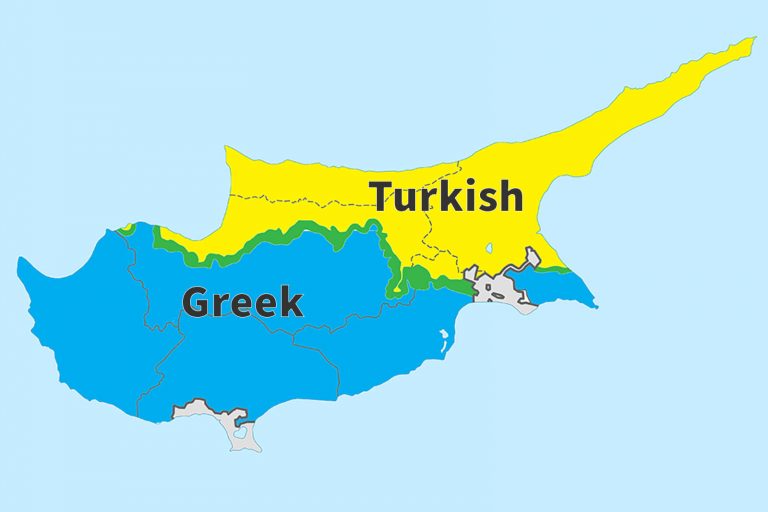Languages serve as the intricate tapestry of any culture’s identity. They encompass the history, traditions, and complexities of a society. When it comes to Cyprus, a jewel nestled in the eastern Mediterranean, one might ask: What languages are spoken in this diverse land? From the verdant hills to the azure shores, Cyprus is a linguistic battleground where Greek and Turkish coexist, occasionally with a few surprises interlaced. This exploration aims not merely to catalog the spoken languages but to delve into their significance through a Christian lens.
The island’s official languages are Greek and Turkish. Greek, predominantly spoken in the southern part of the island, reflects the Hellenistic influence entrenched in Cypriot culture. Its presence echoes the ancient civilization that flourished long before modern political divisions came into play. The Greek Cypriots, who form the majority demographic, view their language as a vital link to their heritage—a rich legacy interwoven with faith and history. The New Testament, originally penned in Greek, resonates deeply with the Greek-speaking populace. In this way, language becomes a vessel for spiritual narratives, ingraining Christian doctrine within the cultural fabric of daily life.
Conversely, Turkish is recognized as the second official language, primarily spoken by the Turkish Cypriot community in the northern regions of the island. The linguistic roots of Turkish can be traced back to the Ottoman Empire, which ruled Cyprus from 1571 to 1878. This historical confluence adds a layer of richness to the island’s already complex identity. Within the Turkish-speaking community, language is not merely a means of communication; it embodies the unique traditions, folklore, and religious practices specific to their culture. The Islamic faith, distinct yet parallel to Christianity, brings its own narratives and linguistic nuances, shaping an intricate mosaic of beliefs on the island.
Beyond these official tongues, a plethora of dialects and languages further embellish the linguistic landscape of Cyprus. For instance, English, a remnant of British colonial rule, enjoys considerable prevalence in educational institutions and as a lingua franca among expatriates. Moreover, Armenian and Arabic also have their roots in Cyprus, representing the smaller yet significant groups that contribute to the island’s cultural diversity. These languages tell a story of coexistence, conflict, and communion—a reminder of the island’s dynamic historical legacy.
Now, one might ponder a provocative question: Can language act as a conduit for communion among differing faiths? The Cypriot experience suggests an affirmative response. During significant Christian festivities, such as Easter and Christmas, it is not unusual to witness bilingual celebrations where Greek and Turkish-speaking communities come together, sharing in the joy and reverence of the season. This phenomenon invites the notion of language as a bridge, enabling dialogue and fostering mutual respect. Such intermingling can serve as an antidote to the historical tensions that have often marred relations between communities.
From a Christian perspective, the doctrine emphasizes love, compassion, and understanding. The Bible speaks of the beauty of diversity in the body of Christ—a theology that reverberates with the reality of Cyprus. Understanding one another’s languages can serve as a pathway to reconciliation and unity, echoing the scriptural truth that “there is neither Jew nor Gentile.” This powerful message is eternally relevant, especially within a society still grappling with historical divisions.
On a more practical level, linguistic diversity also poses certain challenges. Language barriers can inhibit effective communication and understanding among communities. Churches in Cyprus often confront this hurdle, as congregations may comprise individuals who speak different primary languages. Sermons must be translated, and hymns may be reinterpreted to resonate with diverse audiences. This challenge, however, sets the stage for innovation in ministry; bilingual services, interfaith dialogues, and collaborative community projects all emerge as solutions to promote inclusivity.
Educational institutions in Cyprus also navigate this linguistic kaleidoscope. Students learn not only the core subjects in their native tongues but also the fundamental principles of each other’s faith. Such efforts cultivate a spirit of empathy and promote cross-cultural understanding from an early age. Imagine a classroom where Christian values intersect with historical lessons on the languages that form the backbone of Cyprus; this educational fusion equips future generations to appreciate their multicultural heritage.
Ultimately, language in Cyprus transcends mere words. It embodies identity, community, and faith. In a world increasingly characterized by strife and division, Cyprus stands as a testament to the potential of languages to forge deeper connections among individuals. As we ponder the question of communication within this vibrant landscape, may we aspire to harness the power of language to cultivate love and understanding, fostering a shared bond that honors both our differences and our unity.
In conclusion, the languages spoken in Cyprus, particularly Greek and Turkish, do far more than articulate daily needs; they encapsulate a rich story of faith, culture, and resilience. As Christians, we are called to celebrate this diversity while promoting harmony within our communities. The more we embrace these linguistic nuances, the closer we come to fulfilling the divine calling of unity that echoes throughout sacred texts. In Cyprus, language serves as a beacon, illuminating pathways toward understanding as we journey together in faith.



